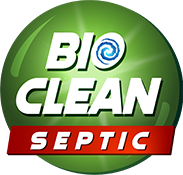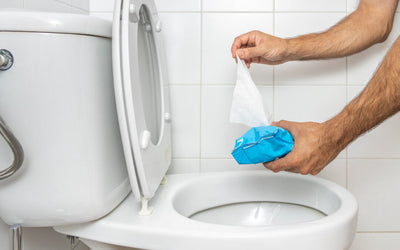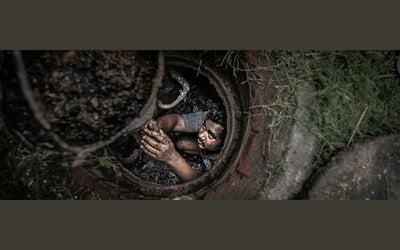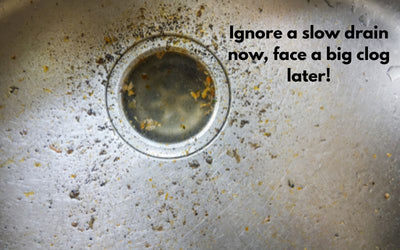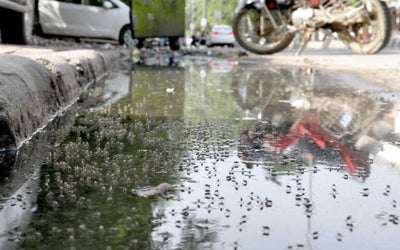Are Flushable Wipes Really Flushable? What They Do to Your Septic System
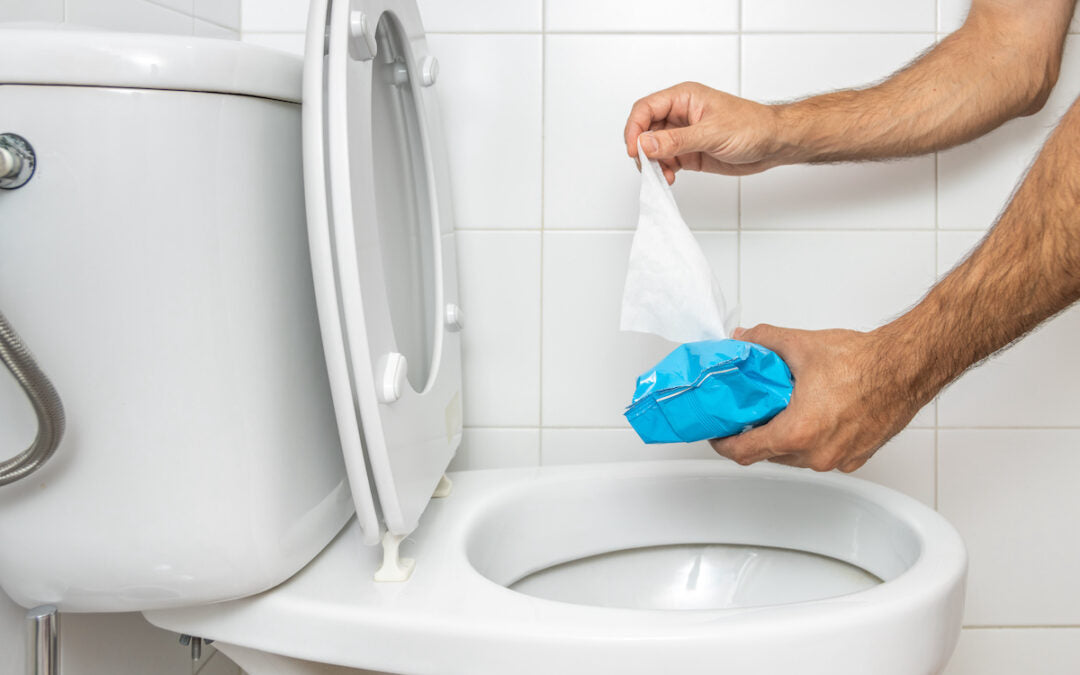
Have you noticed your toilet gurgling after a flush or your bathroom giving off strange smells? These could be warning signs that your septic system is under attack. The biggest culprit? So-called “flushable wipes.” Unlike toilet paper, these wipes don’t break down easily, and over time, they can clog pipes, damage your tank, and overwhelm your drainfield. The right septic tank cleaner is essential to help fight back against buildup, protect your bacterial balance, and keep your system running smoothly.
What Are Flushable Wipes?
Flushable wipes are usually made from non-woven materials like polyester, viscose, or polypropylene fibers. Unlike toilet paper, which dissolves quickly in water, these wipes are designed to stay intact even when wet. This means they don't break down the way they should in your septic system. This is what actually causes blockages and damage over time.
Even though companies say they’re “flushable,” they don’t behave like toilet paper. Instead of disintegrating, they can clog your pipes, your septic tank, and cause serious issues down the line.
What Do They Actually Do to Your Septic System?
What Not to Flush Down Your Toilet
- Flushable wipes
- Baby wipes
- Facial tissues
- Paper towels
- Cotton swabs and balls
- Sanitary pads and tampons
- Grease and cooking oil
- Dental floss
- Diapers
- Medications
The U.S. Environmental Protection Agency (EPA) advises that only human waste and toilet paper should be flushed, explicitly warning against flushing wipes—even those labeled as "flushable"—as they can clog pipes and damage septic systems.
Here’s what really happens:
- They don’t break down. Flushable wipes are made of durable synthetic fibers that resist decomposition. In septic tanks, this means they settle or float — but never dissolve.
- They interfere with bacterial digestion. Septic tanks rely on anaerobic bacteria to break down organic waste. Wipes not only avoid decomposition, they often carry preservatives and chemicals that can disrupt this microbial balance.
- They block baffles and outflow pipes. Instead of flowing freely, wipes get stuck in the baffles (the barriers inside the tank that keep solids from entering the drainfield). Worse, they clump with grease and hair, forming dense plugs that can choke your outlet pipe.
- They overwhelm the drainfield. A 2021 Water UK study found that wet wipes were responsible for 93% of material causing sewer blockages. When they make it past the septic tank into the leach field, they clog the soil pores, stopping the natural filtration process — a failure that often requires excavation and complete drainfield replacement, which can cost ₹3–5 lakh or more in India.
Most homeowners don’t notice the damage until it’s too late.
You flush the wipe. It disappears. Everything seems fine. But inside the system, those wipes are stacking up — silently blocking the exit, choking off bacteria, and setting you up for one bad flush that changes everything.
By the time you see signs like foul smells, gurgling toilets, or a soggy patch near your yard, you’re not fixing a clog. You’re reversing months of buildup — and that means pumping, jetting, or rebuilding parts of your system.
All from a wipe that never broke down.
If You Must Use Wipes, Here’s How to Stay Septic-Safe
We still stand by it — if you can avoid flushable wipes, do it.
But if you absolutely need them?
- Never flush them. Use a lined bin with a lid — it’s safer, and frankly, more honest to the word “disposable.”
- Stick to one wipe per use. Don’t treat them like toilet paper.
- Support your system with a monthly biological treatment.
Products like BioClean septic tank powder help digest what your tank struggles with — including trace residues from wipes and harsh cleaners.
A healthy tank isn’t just about what you flush. It’s about how you support what’s already working underground.
Conclusion
Flushable wipes may seem convenient, but they’re a septic system’s worst enemy. They clog baffles, block drain fields, and disrupt bacterial digestion. Even if you can’t always control what gets flushed, you can strengthen your tank’s defenses with a powerful septic tank cleaner. By using a biological septic tank cleaner monthly, you support healthy bacteria, prevent sludge buildup, and reduce the long-term risks wipes create. Remember, the best septic tank cleaner is not a quick fix—it’s a long-term solution that saves you from costly repairs, foul odors, and system failure. Protect your home, your health, and your wallet with a trusted septic tank cleaner.
FAQs
1. What wipes are actually septic safe?
Truthfully, no wipes are truly septic-safe. Even those labeled "flushable" are made from strong, non-woven fibers that do not break down like toilet paper. The only materials safe to flush are human waste and toilet paper. For the health of your system, dispose of all wipes—including "flushable" and baby wipes—in a trash bin.
2. Which flushable wipes actually break down?
Standard "flushable" wipes do not break down effectively in a septic environment. While some may eventually disintegrate more than others, the process is too slow to prevent clogs and damage. They remain intact long enough to snag on pipes, clog tank baffles, and overwhelm your drainfield. It is a risk not worth taking.
3. What to put in a septic tank to break down wipes?
You cannot "break down" existing wipes once they are in your tank; they must be physically pumped out. However, you can protect your system from the residue and organic waste they leave behind. Using a powerful septic tank cleaning powder like BioClean monthly introduces billions of active bacteria that digest the waste wipes are trapped in, helping to maintain flow and prevent clogs.
4. How to dissolve baby wipes in a drain?
You cannot and should not try to dissolve baby wipes that are already clogging a drain. Chemical drain cleaners will damage your septic system's delicate bacterial balance. For a clog, you need a mechanical solution like a drain snake or professional hydro-jetting. To prevent future issues, stop flushing wipes immediately and use a dedicated septic tank cleaning powder to strengthen your system's natural waste-breaking capabilities.
